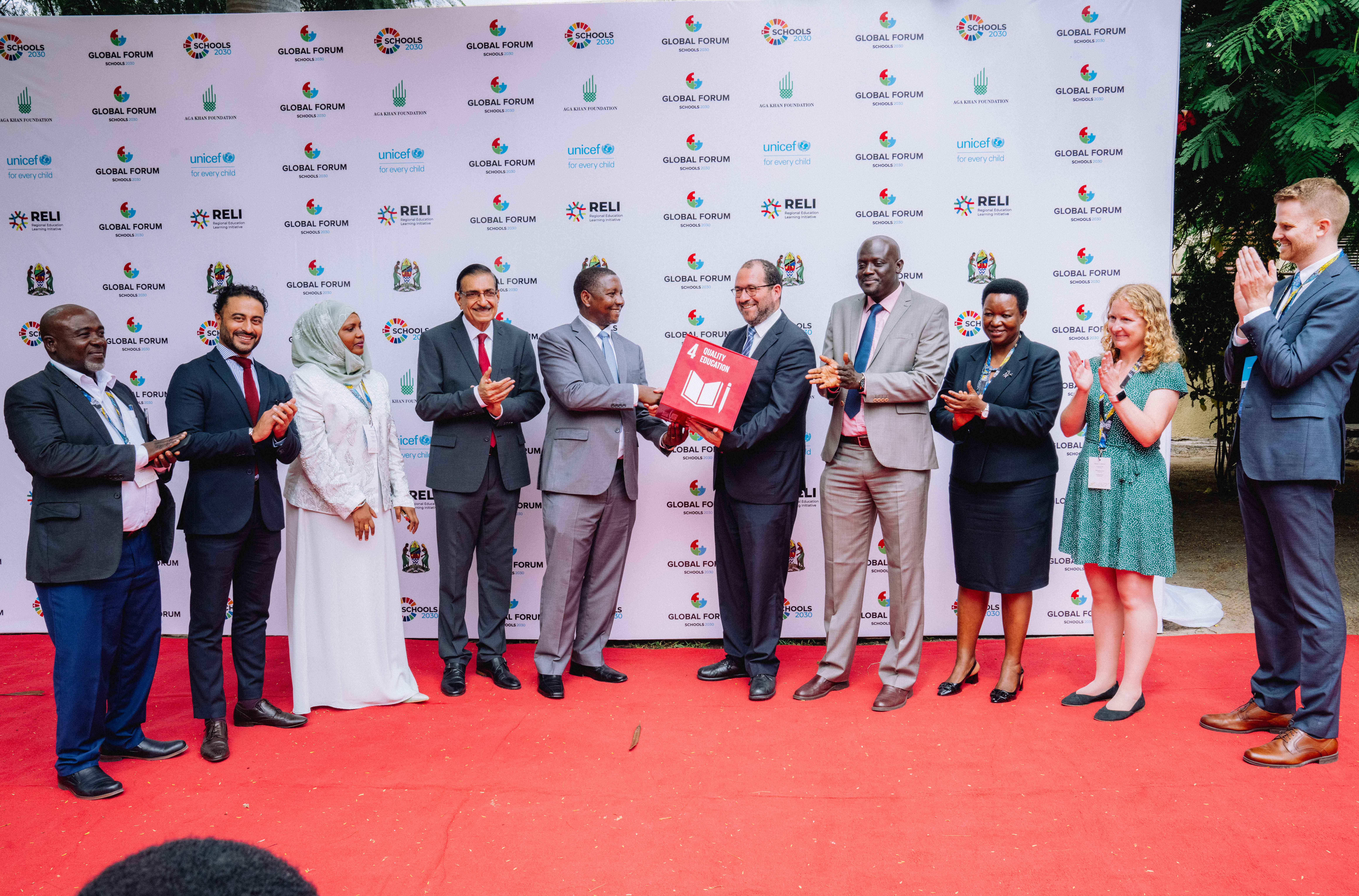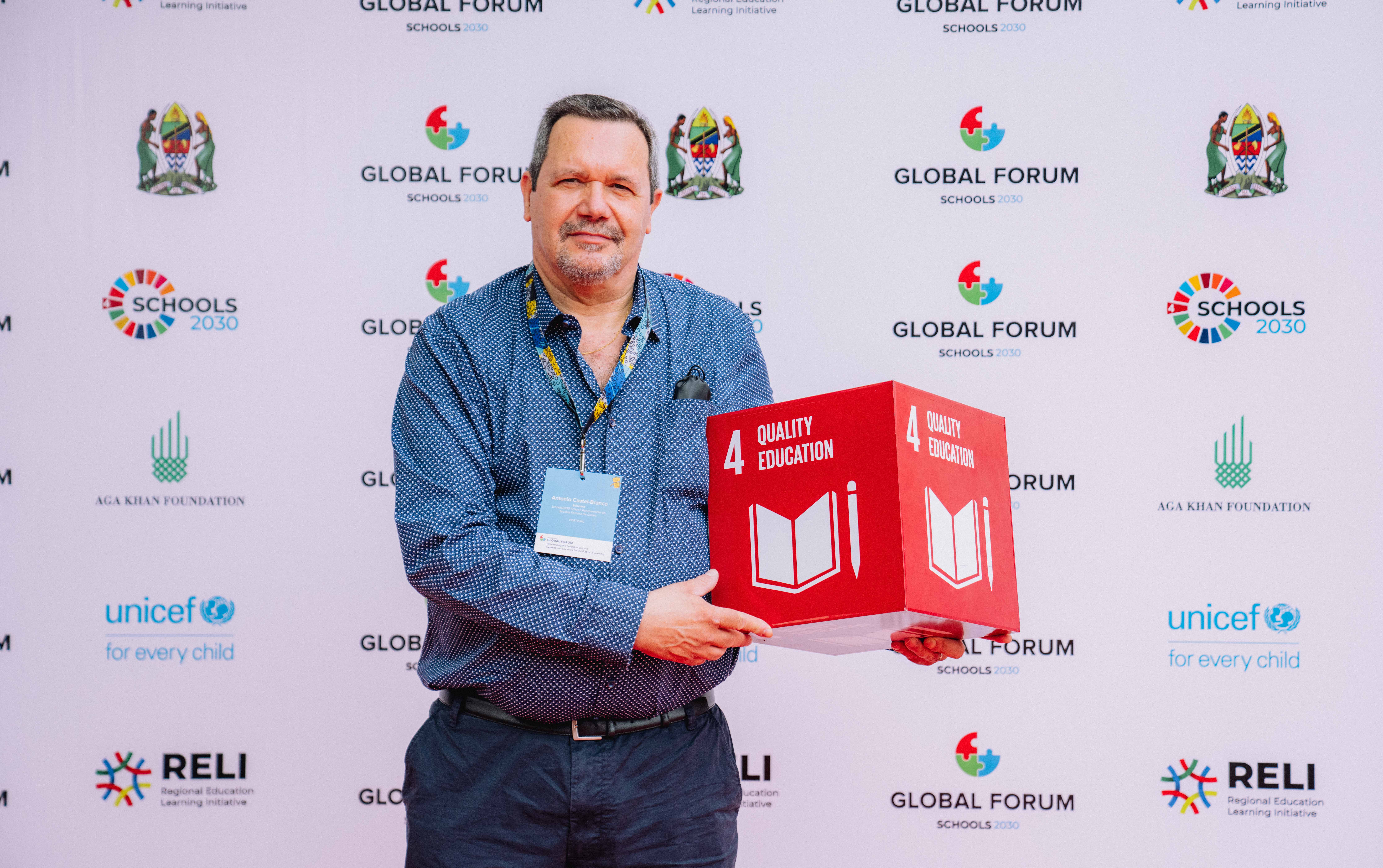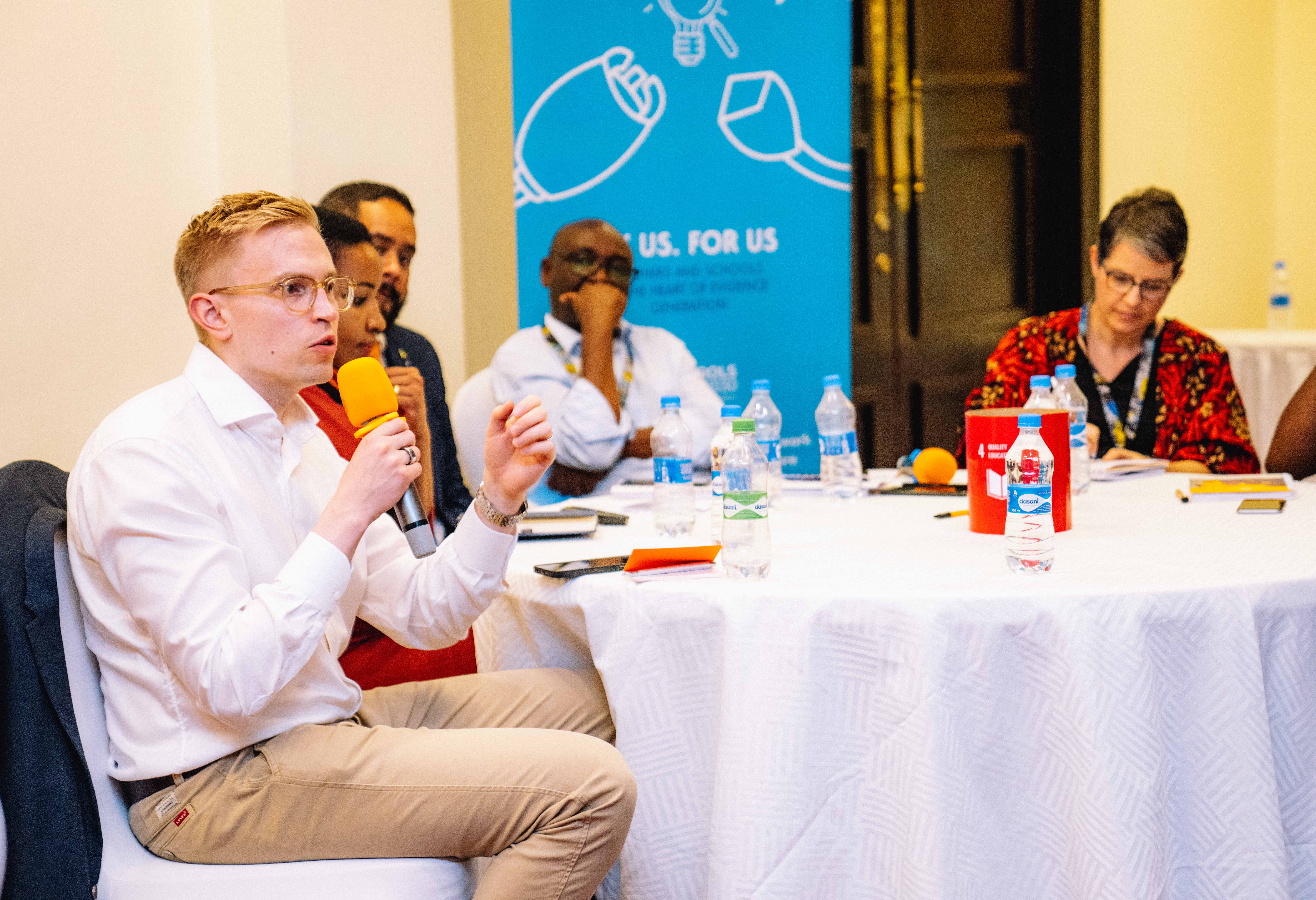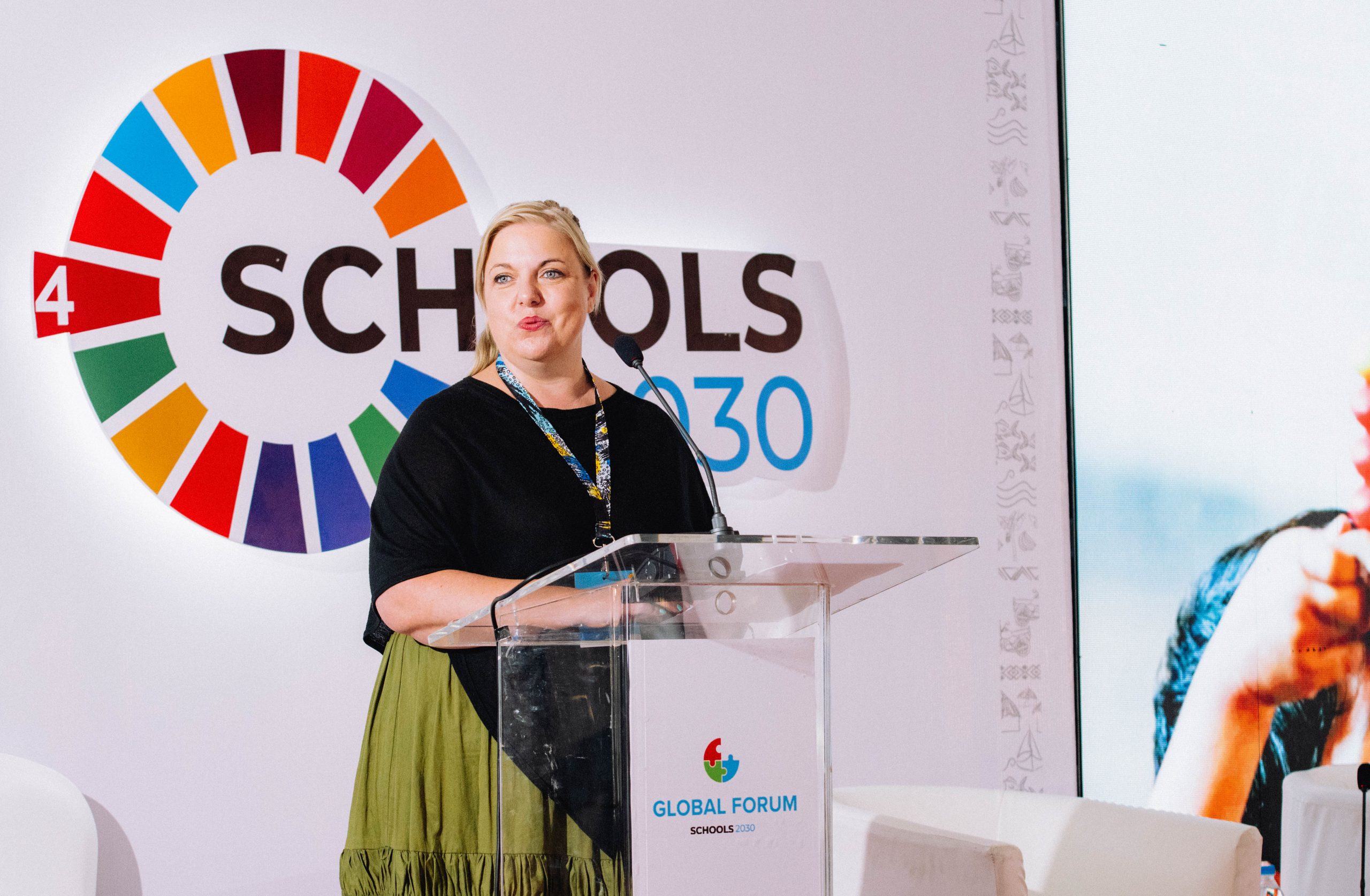It was a blend of cultures, and a melting pot of ideas as the Schools2030 global community – from Kabul, Mombasa, Islamabad, Bishkek, Kampala, Alai, Patna Bihar, Lisboa, Sintra, Dushanbe, and many other cities in 25 countries – globally convened in Dar es Salaam from June 21 to June 23 to chart the way forward in the attainment of Sustainable Development Goal 4 – ensuring inclusive and equitable quality education and promoting lifelong learning opportunities for all – by 2030. For three days, teachers, educationists, policy makers and global education experts convened at the inaugural Schools2030 Global Forum, shared ideas and learnt from each other on ‘what works’ by generating school-level evidence on how to improve equitable quality learning outcomes through a focus on teacher and learner agency.
Schools2030 is a global education initiative, led by the Aga Khan Foundation, that seeks to dramatically change the status quo by equipping educators and school communities with the knowledge, skills, resources and platforms they need to design, implement and track low-cost, sustainable and scalable education innovations that can improve the holistic learning outcomes of their students. The programme seeks to make a significant contribution to achieving SDG4 by 2030, and the Global Forums – to be held annually but beginning in Tanzania – seek to generate new insights, partnerships, and action steps about how best schools, systems and societies can work better together in pursuit of this goal.

By the end of the three days, the diversity and inclusivity at this global event played out well as excited teachers shared about what they liked about their pupils, their aspirations, even their favourite meals – from those who loved Shusi, Tajik pilaf, Molinda, Khan plov, chicken karai, Pilau, to those who loved Ugali and fish from Lake Victoria. Asked about the most exciting thing about the Schools2030 Global Forum, one participant from Brazil had this to say: “I am excited about the exchanges and all that it involves: seeing people from global and country teams with whom I’ve been working for years in person, know more about the work that other countries are developing, share some experiences about the we are developing in Brazil, and have the possibility of taking part in an event that is helping to shape the present and future of education globally from the global south outlook and practices!”
He is expectant that Schools2030 will strengthen Brazil’s education ecosystem. “I hope Schools2030 in Brazil will help us to strengthen our movement of innovation in education, in a way that we can influence public policies to spread holistic and equitable learning for all schools in our country.”
“Through Schools2030, I have learnt to enjoy my classes and make my students interested in learning. I no longer have students that skip classes because they are now eager to learn. The program has helped me teach easily and my students to understand better,” she acknowledged.
Participants interacted with a diverse group of people and broadened their spectrum of cultural and professional experiences and learnt from each other. Among the forum attendees was Mwajuma Mlezi, who teaches Standard One at Mbande Primary School. Ms Mlezi had a lot of good things to say about the Schools2030 global programme. “My pupils have embraced the programme so well, they now find it fun being in the classroom and attending school. They are also grasping concepts so well. Techniques learnt in the programme have also made it easy for us teachers to simplify the learning process, as the learners now understand easily and gain lasting memory, as they can see, touch and explore the teaching aids.”

The Schools2030 programme has run for two years since 2020. There has been lots of improvements in the classroom, Ms Mlezi says. “Initially learners used to experience difficulties reading, writing and Arithmetic as they used to forget easily. But since we were equipped with the new teaching strategies and more tools, this challenge is nearly coming to an end. Initially I used to have 43 learners who used to have learning difficulties, this has now reduced to only 11 learners – who are not so badly off, only that they are slower in learning,” she added.
The high-level event brought together a cross-section of educational leaders from global, national, and local educational ecosystems for three days to explore the future of assessment and evidence in education, the future of design and innovation in education and the future of policy and practice in education. The discussions revolved around schools, systems and societies – how to better measure holistic quality learning outcomes, how to better catalyse inclusive quality learning experiences and how to better collaborate to advance equitable quality learning journeys.
Teachers learnt from each other’s experiences. For instance, Ms Mlezi learnt a variety of teaching and learning techniques that are being applied by different countries to ease learning, what these have achieved and the challenges. “The forum is very beneficial and I would want it to be regular and to involve more teachers so that they can benefit more. I have really benefitted, if more teachers can be part of the programme, it would spread the benefits.”
Teachers from Tanzania, Ms Mlezi added, are highly competitive and are not any different from those from elsewhere in the world – the differences comes in the dissemination of the concepts in the classroom. “Teachers in the programme also get the opportunity to spread the learning techniques to other teachers. For instance, in my school we get the time to make the teaching aids and I advise the other teachers on how best to make them. They also share their own ideas.”

Schools2030 partner organisation, HundrED’s Executive Director, Lasse Leponiemi, at a workshop to discuss what digital competencies learners might need to unlock the benefits of EdTech.
Beginning with Tanzania, Schools2030’s annual Global Forum will create a new, global pulse about how best to link schools, systems and societies for the future of learning in policy, research and practice. An estimated 200 delegates from more than 25 countries held critical dialogue with one another as the hosts intentionally invited a range of experts with various expertise and perspectives from key educational constituencies: youth, teachers, school networks, government leaders, education system leaders, funders, researchers, and civil society.
Schools2030 collaborates with 1000 government schools and community learning centres across 10 countries: Afghanistan, Brazil, India, Kenya, Kyrgyzstan, Pakistan, Portugal, Tajikistan, Tanzania, and Uganda. The programme operates in some of the most remote and marginalised communities, often characterised by low learning outcomes, low resources and low access to education technologies. The focus is on three key transition years for learners: from preschool to formal schooling age, at the end of the primary school cycle, and the transition from lower secondary school to higher education, skills training and the world of work.
In Tanzania, Schools2030 operates in Lindi and Dar Es Salaam, working with 100 schools and youth spaces. Of these, 30 were preprimary schools, 30 primary schools, 30 secondary schools, and 10 youth spaces. Tanzania’s education system is directed by the Education Sector Development Plan (ESDP) (2016/17 – 2020/21) which sets out a series of priorities, in particular, a commitment to providing 12 years of free and compulsory basic education and progressive expansion of technical and vocational education and training to provide Tanzania with an enhanced pool of skilled human resources.
In Kenya, Schools2030 operates in the coastal region, working with 100 schools and youth centres across Mombasa and Lamu, including 30 pre-primary schools, 30 primary schools, 31 secondary schools, and 9 youth development centres. The programme builds from and strengthens the Aga Khan Foundation’s education and ECD work in Kenya by supporting teachers, early-childhood practitioners and youth leaders to improve their pedagogical approaches and to co-design contextually relevant holistic education innovations. In Uganda, Schools2030 is present in Kampala and the northern district of Arua, working with 100 schools and youth spaces. Of these 31 were ECDs, 30 primary schools, 30 secondary schools, and 9 youth spaces.
At the heart of the Schools2030 approach is the recognition that schools should be the center of social change, not the target of change. The programme believes that the key to achieving SDG4 will be found in the classroom – and so the annual Global Forums aims to ensure that these ideas are taken from the classroom and scaled around the world.
This article was originally published in The East Africa newspaper on 2 July 2022.
